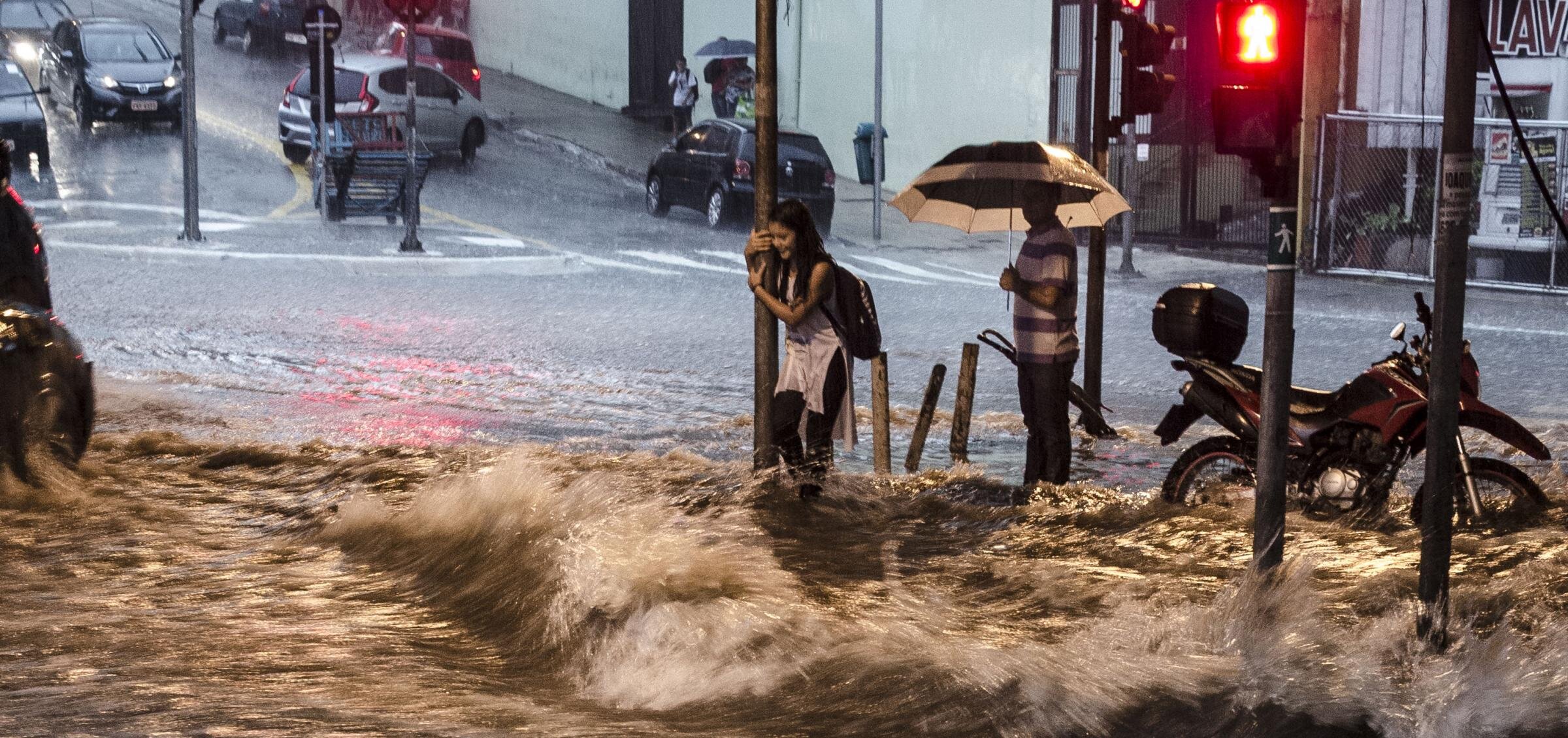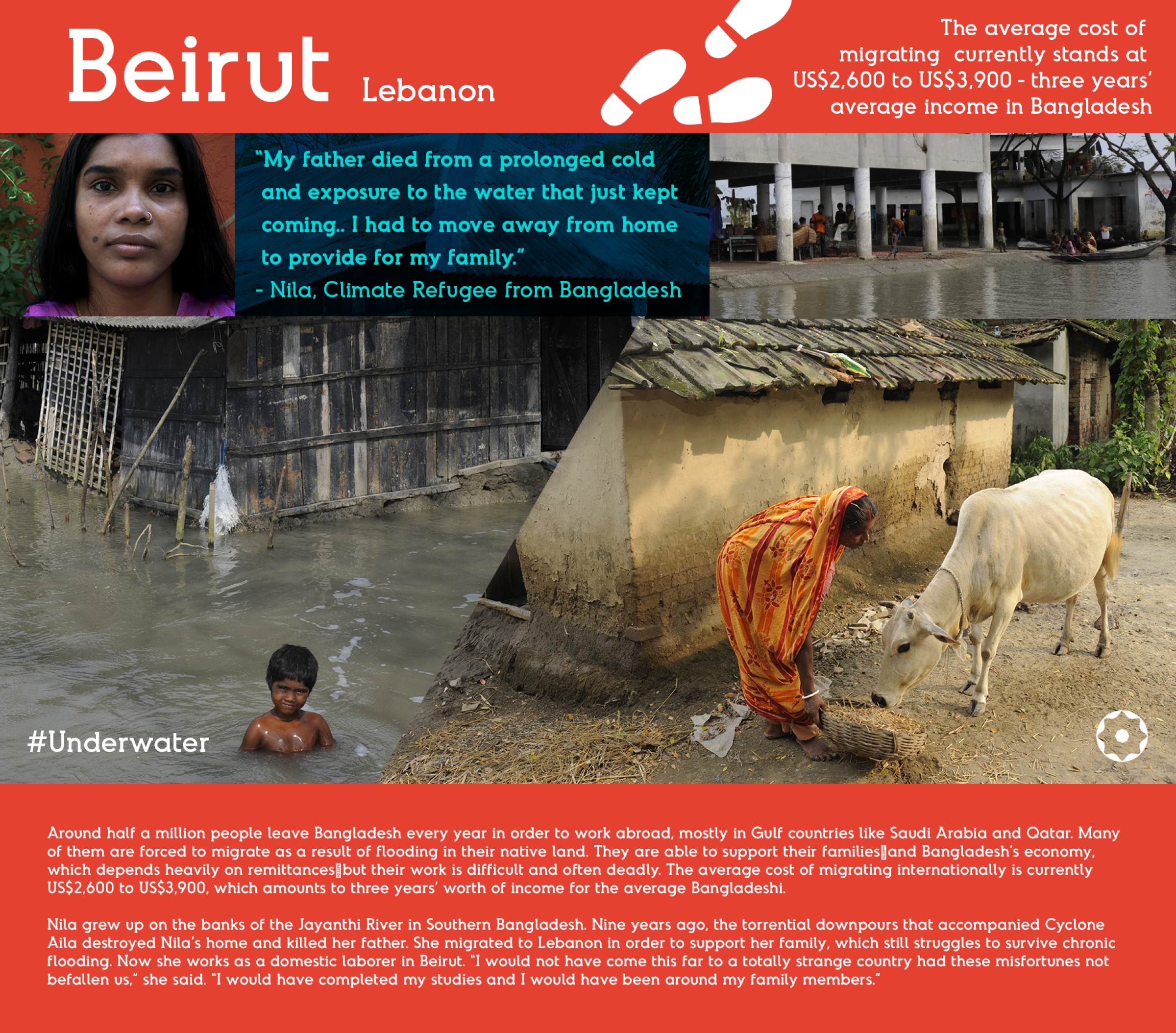
Under Water
How Rising Waters Cost Us All
An Investigative Report By: Annia Ciezadlo, Journalist, Email and Preethi Nallu, Journalist, Email
Until now, scientists have often framed climate change in terms of the future.
But a landmark report issued by the UN’s Intergovernmental Panel on Climate Change on Monday, October 8 states that without "rapid, far-reaching and unprecedented changes in all aspects of society,” our world will exceed 1.5°C much sooner than we think—as early as a dozen years—which will increase the likelihood of floods, heatwaves and droughts.
As higher temperatures lead to sea level rise and more extreme rainfall, more and more people around the globe are experiencing catastrophic floods.
Orb Media looked at seven locations around the globe that have already seen one of the consequences of global warming: flooding as a result of sea level rise and extreme precipitation.
“One of the key messages that comes out very strongly from this report is that we are already seeing the consequences of 1°C of global warming through more extreme weather, rising sea levels and diminishing Arctic sea ice,” said Panmao Zhai, co-chair of the IPCC’s Working Group on the physical science of climate change.
Whether it’s a storm surge in São Paulo, a flash flood in Toronto or an airport underwater in India, these floods all have one thing in common: they cost a lot. Aside from the lives lost and the immediate damages, every flood has a series of ripple effects on other costs like food prices, disruptions to local businesses and long-term damage to people’s livelihoods. Often the most irreplaceable loss is also the least tangible: time. Businesses lose a tourist season; farmers lose a planting season; students lose weeks of school.
The human and financial costs of climate-related flooding are already much higher, longer-lasting and far-reaching than we thought. One study found that a single hurricane can cause a country’s national income (including GDP) to decline for the next two decades. Another found that without large-scale adaptations, river flooding could cause a 17 percent increase in global economic losses over the next 20 years.
Click here for our feature story.







